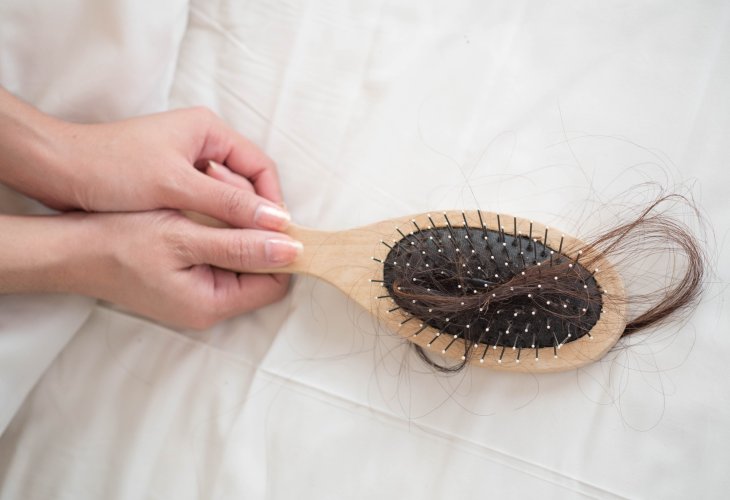Why Is My Hair Falling Out? Tips for Healthy Locks
Discover the causes of hair loss and the key foods to include in your diet for luscious, full hair.
 (Photo: shutterstock)
(Photo: shutterstock)Most of us lose between 50 to 100 hairs every day as part of our body's natural renewal process. Since new hair usually grows in to replace the lost strands, there's generally no cause for concern.
Hair loss becomes problematic only when it leads to a noticeable thinning of your hair or baldness.
Hormonal imbalances can constrict blood vessels near the skin, reducing blood flow to the hair root, causing the hair to fall out.
Poor nutrition, along with foods that deplete nutrient reserves – such as saturated and trans fats, white flour, white sugar, and processed foods – can disrupt circulation in the body.
Make sure to eat varied and balanced meals. Increase your intake of whole grains, vegetables, and high-quality protein sources, like legumes, nuts, and seafood.
Biotin improves hair and scalp health and can prevent hair loss. Good sources of biotin include brewer's yeast, nuts, brown rice, and oats. These foods are also rich in B vitamins, which aid hair growth.
Iron is essential for hair growth. Take a tablespoon of molasses (sulfur-free) daily, and add leafy greens for iron absorption and other minerals.
Vitamin C is crucial for the absorption of iron in the body – consume fresh vegetables and fruits.
Vitamin E is important for scalp health – find it in avocados, olive oil, and nuts.
Foods containing Omega-3, like flaxseeds and seafood, help reduce inflammation, dandruff, and scalp itchiness.
Pumpkin seeds are a good source of zinc – a vital mineral for strengthening hair roots.
Strict diets can lead to essential nutrient deficiencies. Stress also depletes vitamin and mineral reserves, leaving insufficient nutrients to nourish the hair roots. Typically, this type of hair loss stops when stress levels decrease.
Chemical treatments and applying pressure to the hair can cause damage. Some medications have hair loss as a side effect. It's worth checking for alternative medications that don't hinder growth.
Dandruff can clog scalp pores and disrupt blood flow and normal functioning. There are some home remedies that could help:
Warm olive oil and gently massage it into the scalp. Wait at least an hour before washing your hair.
Boil sage leaves or myrtle leaves in water, let them cool, and use as a rinse. It also works well for preventing dandruff.
Rosemary oil is also excellent for applying to the scalp – it increases blood flow and is beneficial.
Zohara Shervit is a certified naturopath, N.D., and iridologist with many years of experience in treatment and advice, as well as facilitating workshops. To book a free workshop, call 073-2221290

